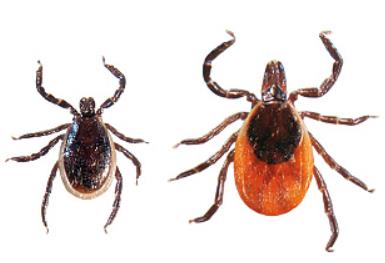Let’s Talk About Lyme Disease…….

Lyme Disease: Is Your Pet (or You) at Risk?
What is it?
Most people have probably heard of lyme disease, but many don’t know where it comes from or how it can affect your pet, or humans. Lyme disease (Lyme borreliosis) is an illness that affects both humans and animals. This is known as a zoonotic disease. It is spread through ticks that carry the causative agent, the bacteria Borrelia burgdorferi. Borrelia burgdorferi is transferred by a tick bite. The species of ticks that can carry the bacterium is the American Dog Tick, the Black-legged Tick a.k.a Deer Tick , and the Lone Star Tick. The American Dog Tick and the A. americanum are most active April-late August, and I. scapularis is most active October – May. This means that ticks that can spread lyme disease are active all year-round!
Symptoms
Symptoms in pets don’t typically appear for several months after infection, and not all dogs infected show clinical signs of the disease. Some of the symptoms include fatigue, fever, joint swelling, lack of appetite, and decreased activity. Lameness may also occur.
Symptoms in humans are much the same, but with additional chronic nerve and joint pain, as well as heart and neurological problems. Humans also develop what is known as a “bulls-eye” rash at the bite location that resembles a target.
Lyme disease cannot be passed from one pet to another, or to humans, except through tick bite. However, if one member of the household is exposed, it is wise to have those who were with the exposed patient tested as well, as they could have been exposed at the same time.
Treatment For Your Pet
It is advised to consult your veterinarian regarding what treatment is the best route for your pet. Every case is different, and every dog’s immune system varies. Some pets may have an active infection but show no symptoms, while others are symptomatic. Antibiotics are often used for treatment if your veterinarian deems necessary.
Prevention is Best
The best way to treat lyme disease is preventing it in the first place. Year-round flea and tick prevention is available in numerous forms so it is easy to choose which is best for your pet. There is also a yearly vaccine available. The best idea is to use both monthly prevention and the yearly vaccine as preventatives. Awareness of ticks is good prevention as well. Because ticks are usually in grasses or shrubberies, it is best to keep a maintained lawn and clear any shrubbery next to homes. It is best to check for ticks after going outdoors, even if your or your pet were only outside for a short period of time.




